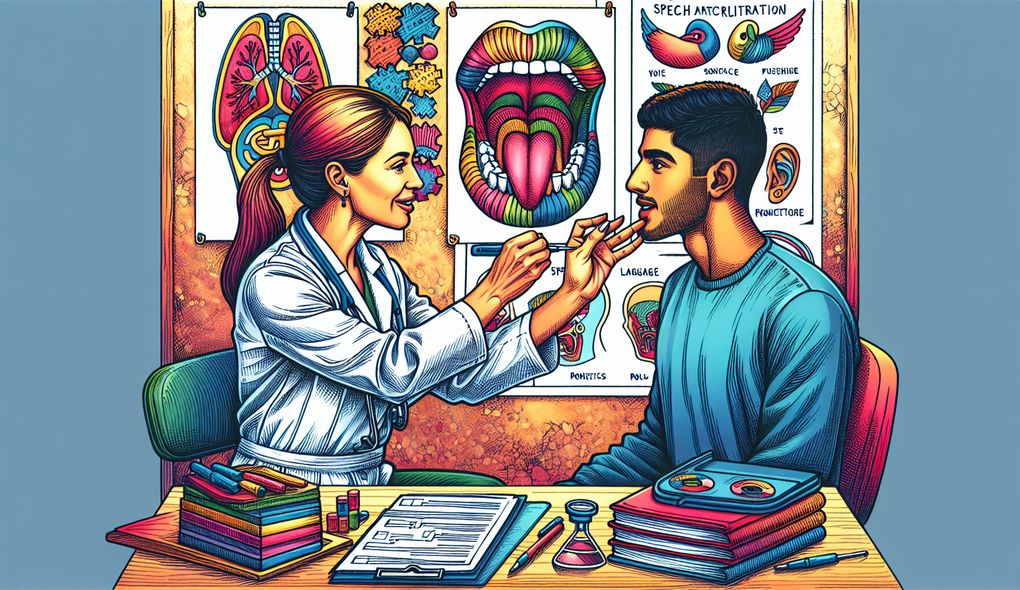Can you give an example of a communication disorder you have treated and how you approached the treatment?
INTERMEDIATE LEVEL

Sample answer to the question:
Yes, I have treated a communication disorder called stuttering in a young adult client. During the treatment, I first conducted a thorough assessment to understand the severity and underlying causes of the stuttering. Based on the assessment results, I developed a personalized treatment plan for the client which included techniques such as breathing exercises, slow and deliberate speech, and speech restructuring. I also incorporated counseling sessions to address any emotional or psychological aspects related to the stuttering. Throughout the treatment, I closely monitored the client's progress and adjusted the treatment plan as necessary. Over time, the client's fluency improved significantly, and they gained confidence in their communication skills.
Here is a more solid answer:
Yes, I have had the opportunity to treat a communication disorder called stuttering in a young adult client. To effectively approach the treatment, I utilized my strong analytical and diagnostic skills to conduct a comprehensive assessment of the client's speech patterns and fluency disruptions. This allowed me to identify the core factors contributing to the stuttering and develop an individualized care plan. The treatment plan involved a combination of evidence-based techniques, such as breathing exercises, slow and deliberate speech, and speech restructuring. Additionally, I focused on addressing the client's psychological and emotional aspects through counseling sessions. By closely monitoring the client's progress and regularly adjusting the treatment plan, I was able to witness significant improvements in their fluency and overall confidence in communication.
Why is this a more solid answer?
The solid answer expands upon the basic answer by providing more detailed information on how the candidate utilized their skills in analytical assessment, communication, and care planning. It highlights how the candidate implemented evidence-based techniques and addressed the client's psychological and emotional aspects. However, it could further improve by including specific examples of how the candidate communicated and collaborated with other professionals in the therapy process.
An example of a exceptional answer:
Certainly! I had the privilege of treating a young adult client with a communication disorder called stuttering. To ensure an effective treatment approach, I leveraged my strong analytical and diagnostic skills to conduct a comprehensive evaluation of the client's speech patterns, fluency disruptions, and underlying causes. This in-depth assessment allowed me to develop an individualized care plan that targeted the specific needs and challenges of the client. Throughout the treatment process, I maintained open and clear communication with the client, ensuring their active participation in goal setting and progress tracking. To address the stuttering, I incorporated evidence-based techniques such as breathing exercises, slow and deliberate speech, and speech restructuring. Additionally, recognizing the emotional and psychological impact of the disorder, I provided counseling sessions to support the client's overall well-being. Collaboration was vital in this process, and I actively collaborated with teachers, psychologists, and other health professionals to implement a comprehensive care plan. By regularly evaluating the client's progress and adjusting the treatment plan accordingly, I witnessed remarkable improvements in their fluency and self-confidence. It was truly rewarding to witness the client's transformation and their ability to communicate with ease and confidence.
Why is this an exceptional answer?
The exceptional answer goes above and beyond by providing further elaboration on the candidate's utilization of analytical and diagnostic skills in the evaluation process. It emphasizes the importance of clear communication, goal setting, and progress tracking with the client. Additionally, it highlights the candidate's collaboration with other professionals and acknowledges the emotional and psychological aspect of the disorder. The answer is comprehensive and offers a compelling example of the candidate's expertise in treating communication disorders.
How to prepare for this question:
- Familiarize yourself with different types of communication disorders and their treatment approaches.
- Reflect on your past experiences treating communication disorders and identify specific examples to showcase during the interview.
- Highlight the importance of collaboration and teamwork in the treatment process.
- Be prepared to discuss your analytical and diagnostic skills in evaluating communication disorders.
- Demonstrate your ability to develop individualized care plans and implement evidence-based techniques.
- Emphasize the significance of counseling and addressing the emotional aspects of communication disorders.
What are interviewers evaluating with this question?
- Strong analytical and diagnostic skills
- Excellent communication and interpersonal skills
- Ability to develop and implement individualized care plans

